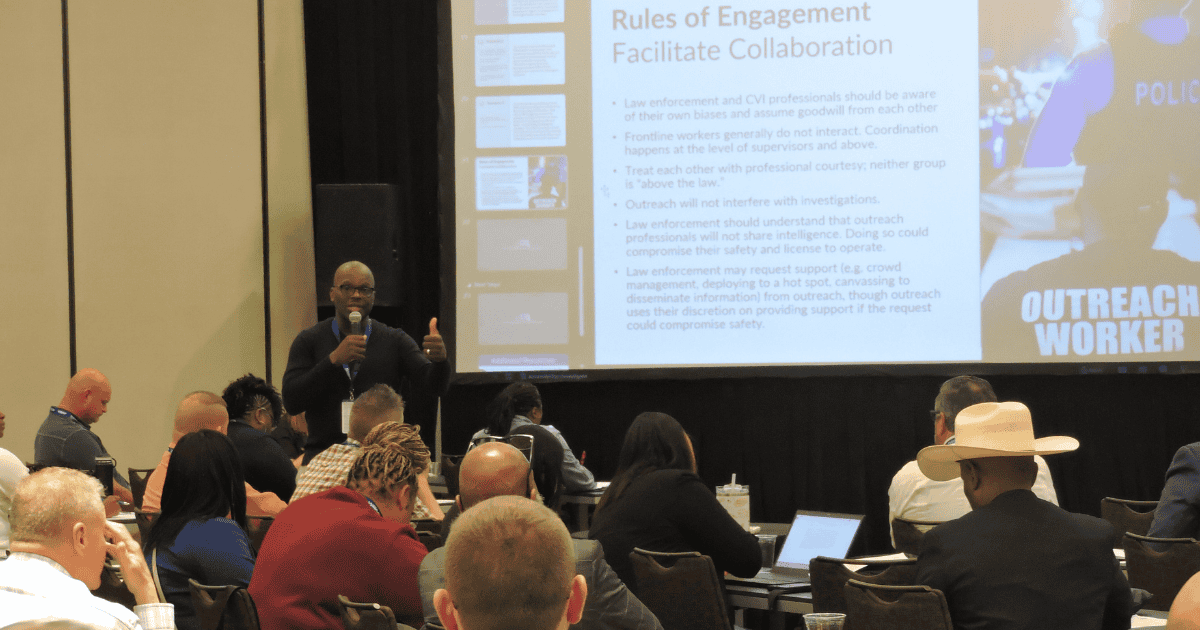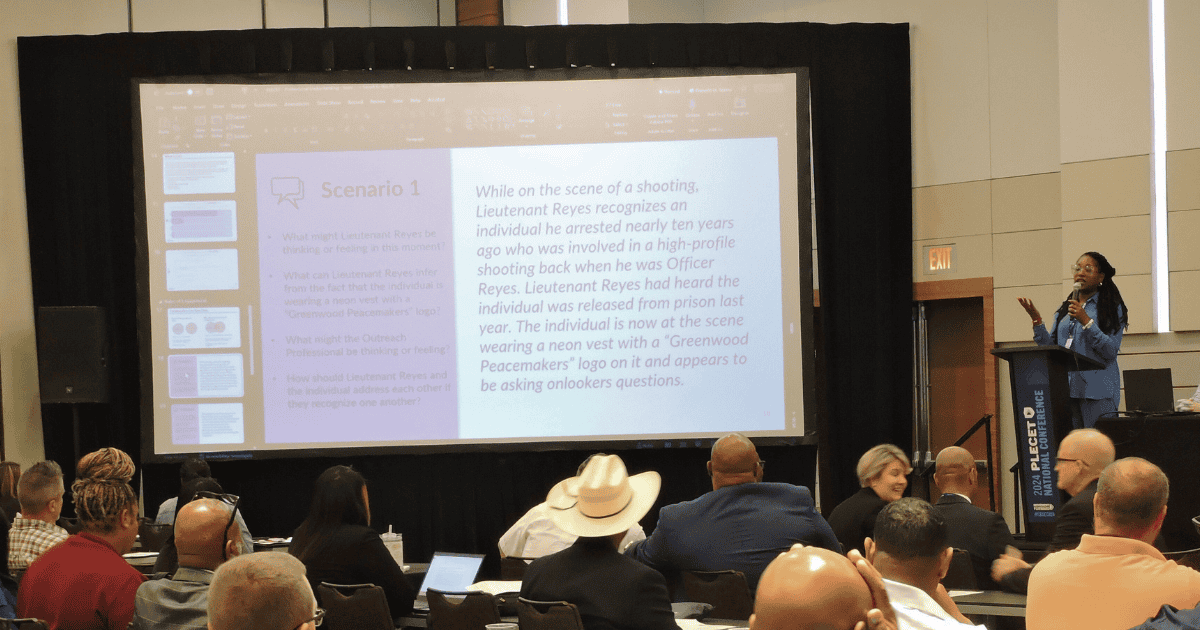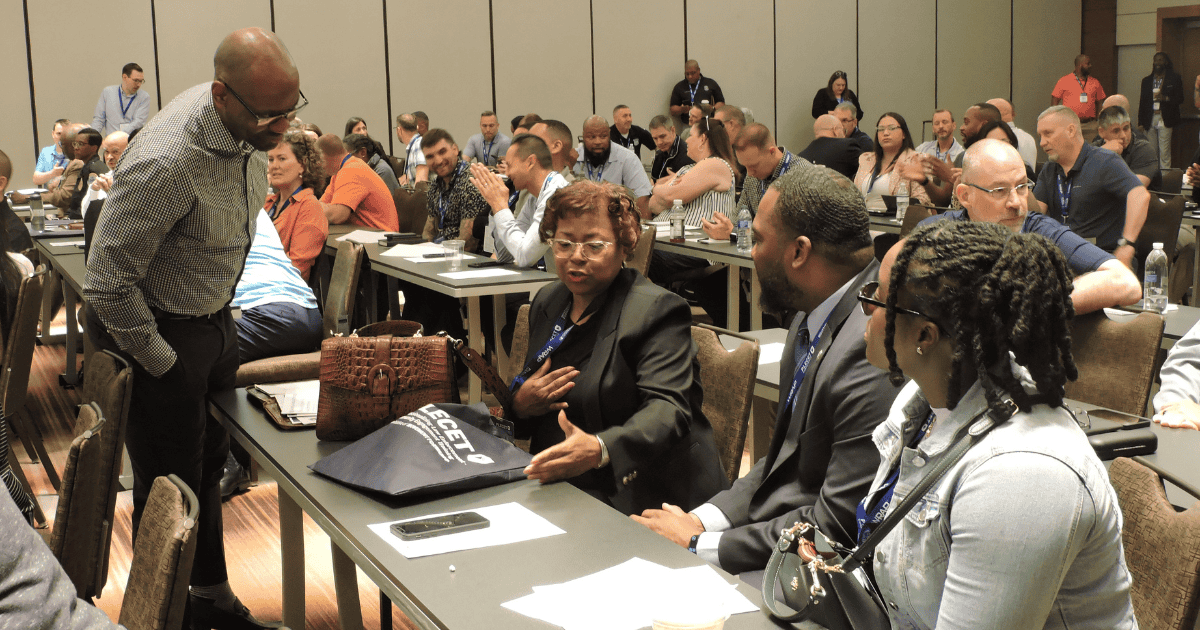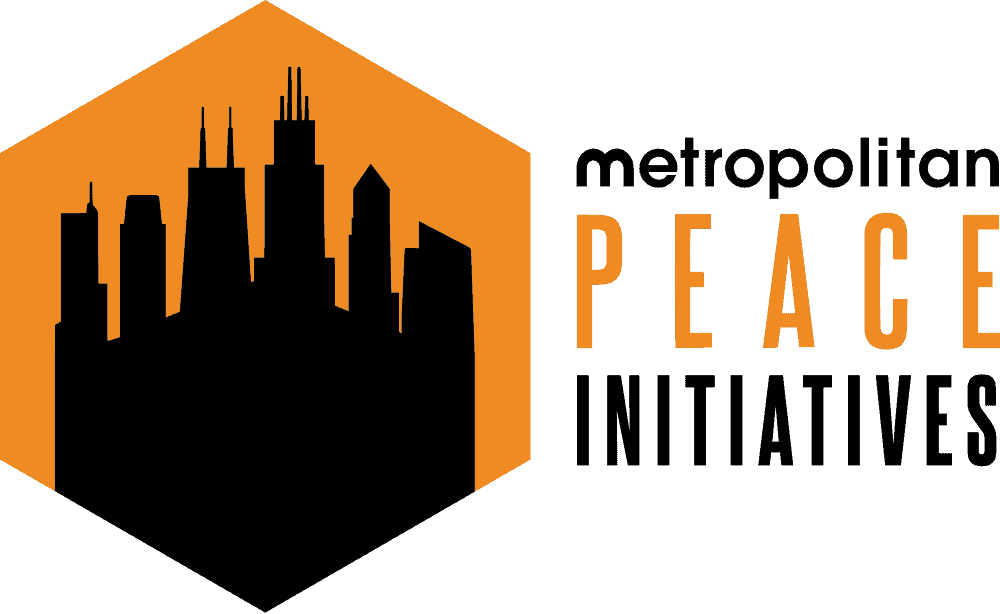CVI in Practice: MPI Leads Strategy Workshops at 2024 PLECET National Conference in Atlanta

Metropolitan Peace Initiatives (MPI) leadership conducted a series of community violence intervention (CVI) training courses at the 2024 Professionalizing Law Enforcement-Community Engagement Training (PLECET) National Conference on May 2 and 3, 2024 in Atlanta. These interactive sessions brought in a host of law enforcement personnel, community leaders, researchers, and scholars from across the nation, all interested in learning more about CVI and how it can play an integral part in the public safety ecosystem.
MPI Director of Field Instruction Steven Perkins and MPI Chief Training Officer Dr. Vanessa Perry DeReef led the training entitled “Disrupting Cycles of Violence: A Workshop on Evidence-Based Intervention Strategies,” with additional insights from CVI Solutions Founder Soren Tsui and MPI Executive Director Vaughn Bryant. Together, they discussed what CVI looks like in practice, with strategies that include street outreach, the creation of non-aggression agreements, education, behavioral health, workforce development, and victim services.
The session also focused on the benefits of law enforcement collaborating with CVI programs and the rules of engagement that promote healthy collaboration between law enforcement and CVI professionals.
“Law enforcement and CVI have that professional understanding, so as they work independently, they also complement each other in their roles. They have the same objective, but the methodology may be different,” Perkins said, noting how the Metropolitan Peace Academy does its part in Chicago to foster a mutual understanding with law enforcement to keep communities safer from gun violence.
Perkins explained that this collaboration is “grounded in rules of engagement,” some of which include: law enforcement and CVI professionals being aware of their biases and assuming goodwill from each other; coordinating at the supervisor level and above; each group showing professional courtesy and an understanding that they’re not above the law; establishing clear boundaries in providing support as to not compromise safety; and more.
“When we meet together at the scene of the crime, we want to make sure that we are aware of the trauma that’s happening in that particular space,” Perkins said. “[As CVI professionals], we don’t interfere with law enforcement’s investigation. We train to that — once that red and yellow tape goes up, we don’t interfere. That’s law enforcement’s crime scene. We allow law enforcement to do their job.”
Throughout the session, Dr. Perry DeReef presented several scenarios to attendees who broke out into small groups for discussion. These scenarios centered on interactions between law enforcement and CVI professionals, potential biases, community reactions, and more. It was a prime opportunity for participants to explore best practices when interacting with the community.

“The scenarios allow individuals to apply what they believe to be the best resolution and unpack the professional understanding in real time,” Dr. Perry DeReef said. “As a result of the training, we hope to bring greater awareness to the rules of engagement and how they can be applied in other cities across the nation.”
Several attendees said they found the training to be extremely informative, as they had previously started the day with little to no knowledge of CVI. In a poll conducted during one particular session, approximately two-thirds of participants were unfamiliar with this rapidly growing professional field dedicated to helping reduce gun violence.
“My knowledge was zero. I didn’t know much about it,” said Major Caleb McKnight of the Anderson Police Department, located in Indiana. “We have a lot of community nonprofits that are pretty similar. So now, I’m knowledgeable of the actions that need to be taken.”
“The big takeaway is the necessity of partnering with people. The scenarios were great to talk about. [We need to] build rapport and create a point of contact within those outreach programs. We need to do better.”

